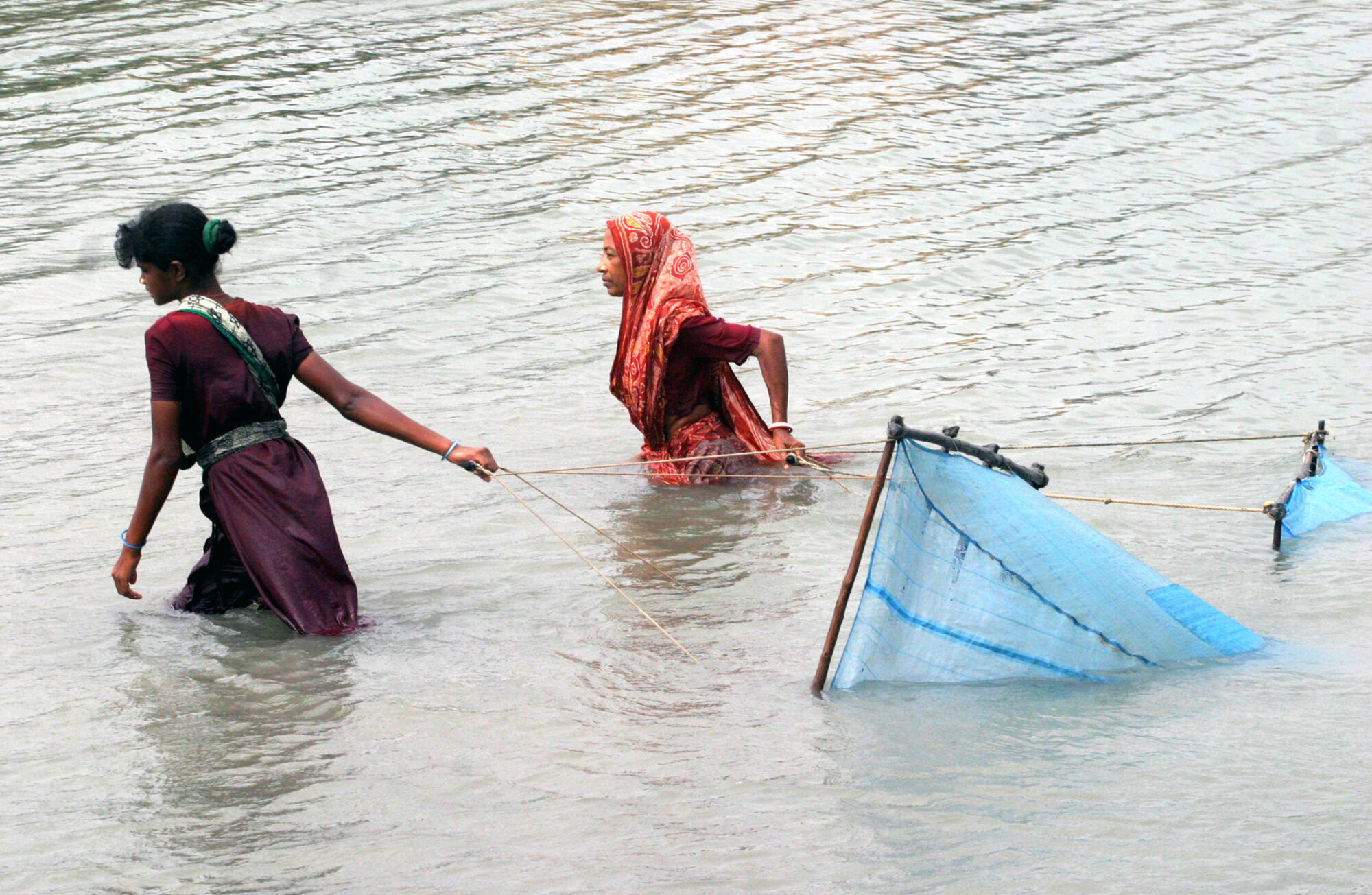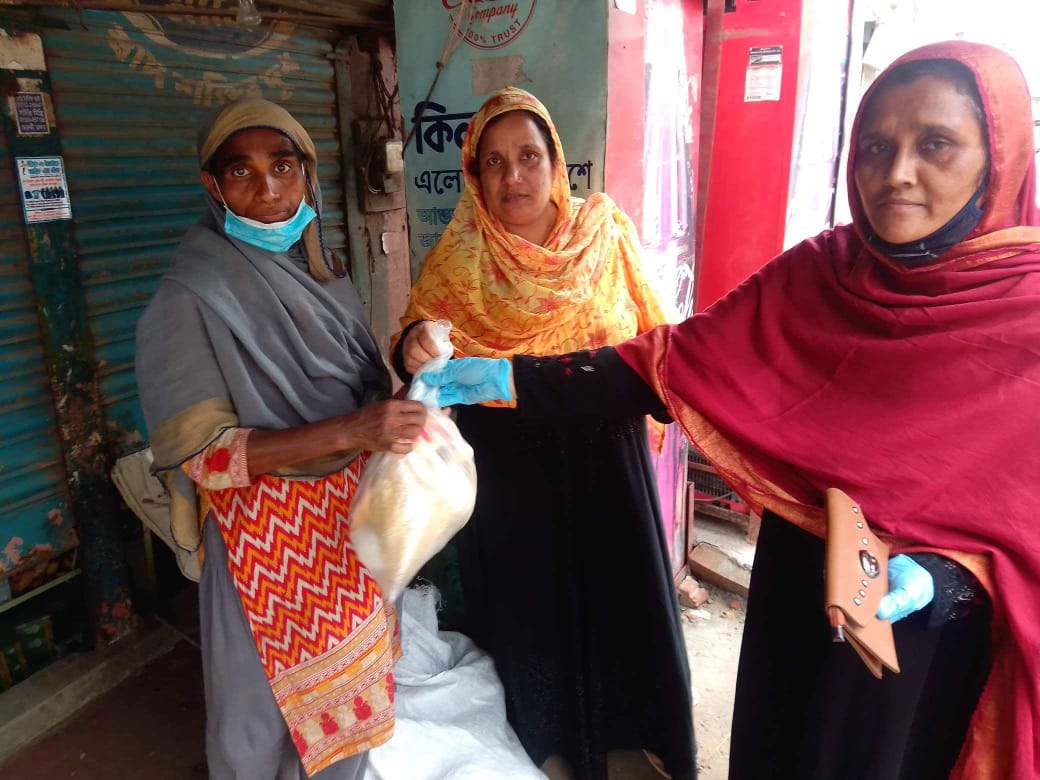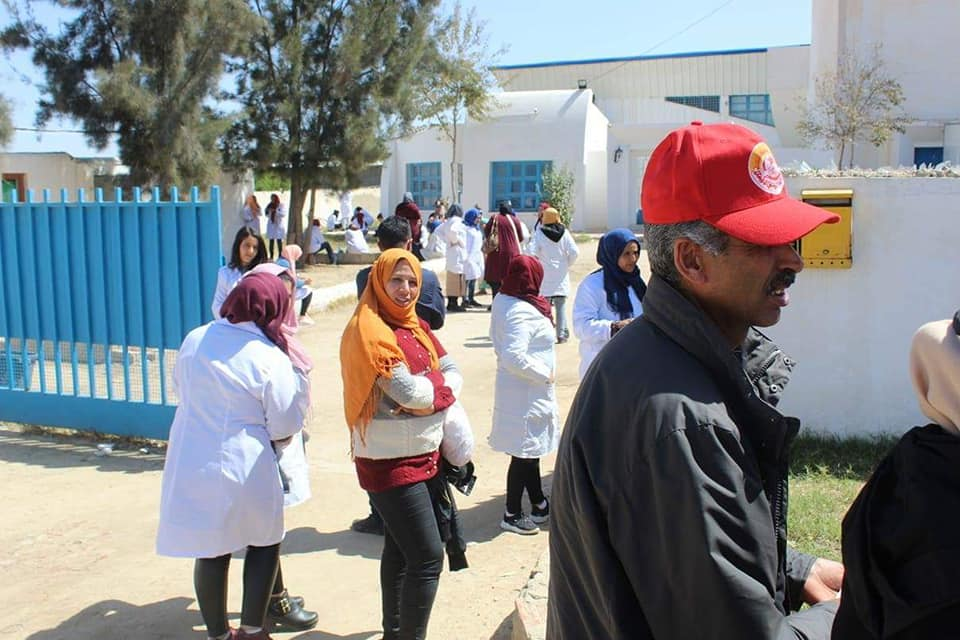Climate change and environmental degradation have exacerbated inequality and worsened existing inequities resulting from resource scarcity, conflict and climate-related shocks. Women workers—particularly those in the informal economy—bear significant burdens due to...
IMPROVING WORKER HEALTH AND WELL-BEING THROUGH LEADERSHIP, ORGANIZING AND COLLECTIVE ACTION
Our focus on building strong trade unions would not be complete without challenging all forms of worker repression, particularly how violence against women exacerbates the inequalities they face in their workplaces and limits their ability to push for the changes they want and need.

Violence against women in the workplace causes women to leave their jobs or discourages them from entering fields where they anticipate experiencing it. Not only does this perpetuate occupational segregation and the gender pay gap, it comes at a significant cost to employers and the economy in general.
- South Africa lost an estimated 1.3 percent of the country’s GDP in 2014 due to violence against women.
- The productivity cost of sexual harassment in the Cambodian garment industry is $89 million annually.
- Violence against women and men was estimated to cost the European Union more than $32.5 billion euros in 2021.
Our approach
For nearly 30 years, we have prioritized eradicating violence against women on the job by developing grassroots strategies with women workers, their unions and women’s rights organizations.
We’ve developed multifaceted, bold programs that focus on:
- Advancing women worker leadership development through our Leadership for Unity, reNewal and Amplification (LUNA) program using a trauma-informed curriculum with our women worker partners.
- Worker rights education.
- Coalition building and grassroots movement-building and organizing.
- Using collective action to build power to bargain legally binding employer agreements that address and prevent violence against workers.
- Legal reform advocacy to hold governments accountable, including the ratification and implementation of International Labor Organization Convention 190 (C190).
These comprehensive programs are delivered across multiple sectors in more than 26 countries and cross-regionally.

Historic progress
In 2019, our Lesotho-based garment worker partners, their unions, local women’s rights groups, and international worker rights organizations negotiated groundbreaking agreements with major fashion brands and the factory owner, Nien Hsing Textiles, to end rampant violence against women at five factories.
The Lesotho Agreements represent the first instance in which brands and their suppliers entered into binding and enforceable workplace agreements to stop violence against women and men, and protect workers.
Our program in Lesotho went beyond just the bargaining table–we helped our partners craft a code of conduct and establish an independent monitoring system that, at its signing, provided more than 10,000 garment workers with access to a complaint and investigation process that can mandate consequences for perpetrators of violence against workers at Nien Hsing factories, including dismissal.
Click here to open the video in a new tab.
Ratification and implementation of Convention 190
Beginning in 2014, we were a key member of a global coalition led by our women workers partners, including global union federations and other worker rights organizations, advocating for a landmark global treaty – Convention 190 (C190) – to eliminate violence and harassment at work, including gender-based violence and harassment.
When ratified, C190 requires governments, employers and workers to come together to develop and implement solutions that will prevent and address these abuses.
The International Labor Organization adopted C190 in June 2019, and we continue to support our partners as they push for ratification by their governments, recognizing the detrimental physical and emotional health implications of violence against women, as well as the value of women in economic development.
Solidarity Center Workers’ Empowerment Project in Bangladesh Pivots in COVID-19 Crisis
As garment factories shut down in Bangladesh during the novel coronavirus pandemic, leaving workers without wages or access to support services, unions and Worker Community Associations (WCAs) around the country rapidly shifted to address the crisis, with Worker...
Garment Workers Need Our Assistance, Tunisia Labor Movement Tells Employers, Government
The Tunisian General Labor Union (UGTT) is calling on employers and the government to join with it in addressing the severe challenges textile workers are facing during the COVID-19 crisis and negotiate an action plan to guide the struggling garment sector. Some...
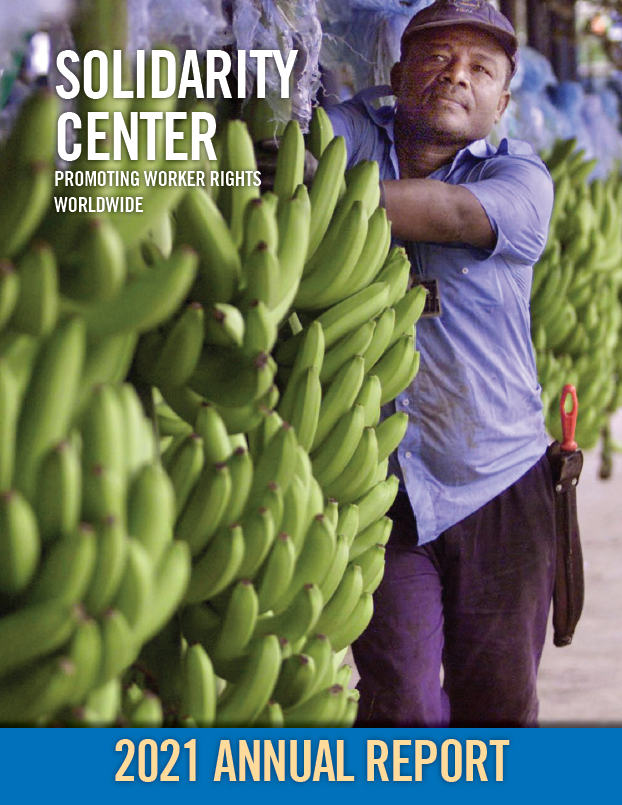
2021 Annual Report
Download here.
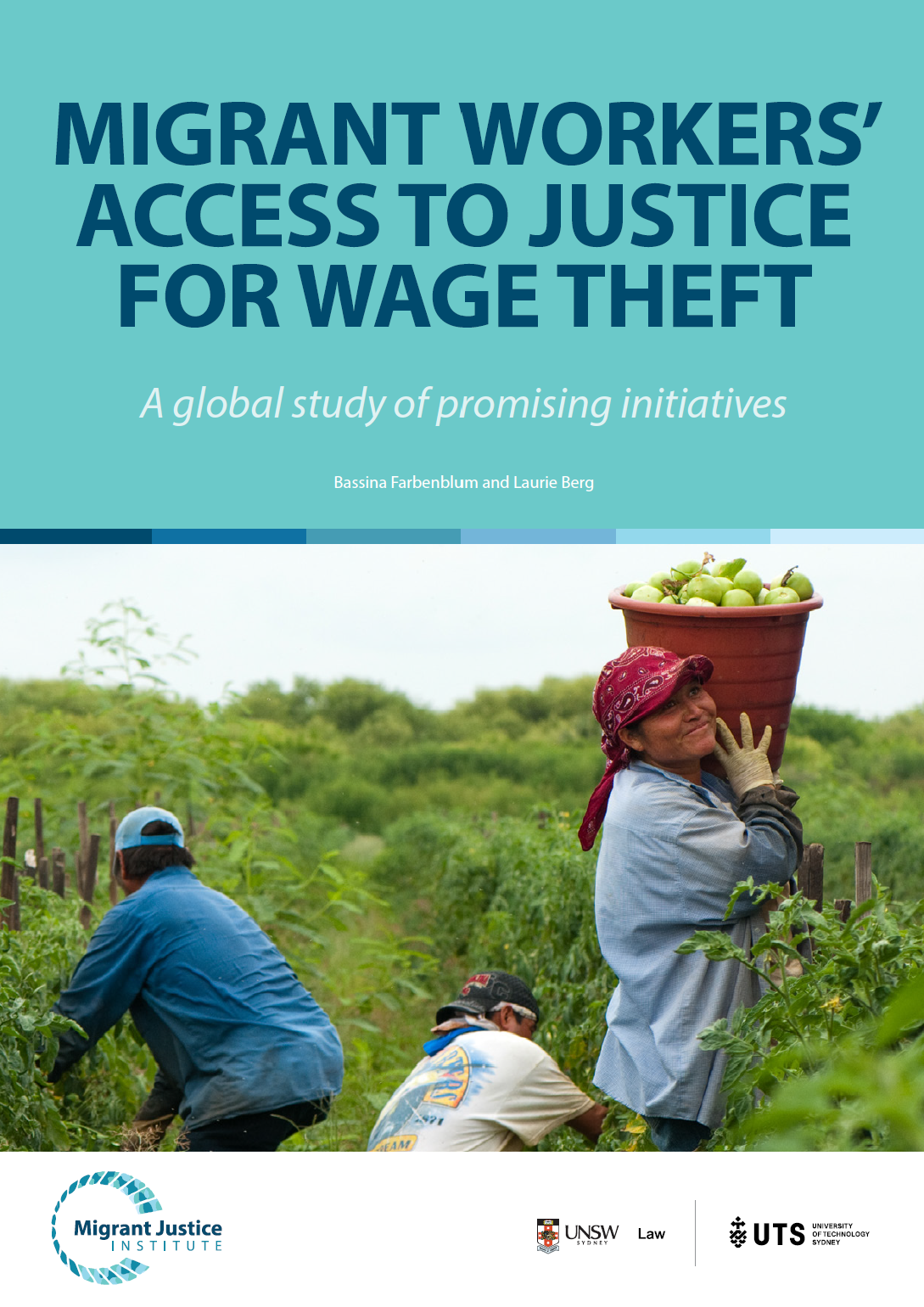
Migrant Workers’ Access to Justice for Wage Theft: A Global Study of Promising Initiatives
The report identifies initiatives from around the world that enable migrant workers to obtain redress for wage theft through administrative and judicial mechanisms. These initiatives shift risks and burdens of wage recovery away from workers and onto government and...
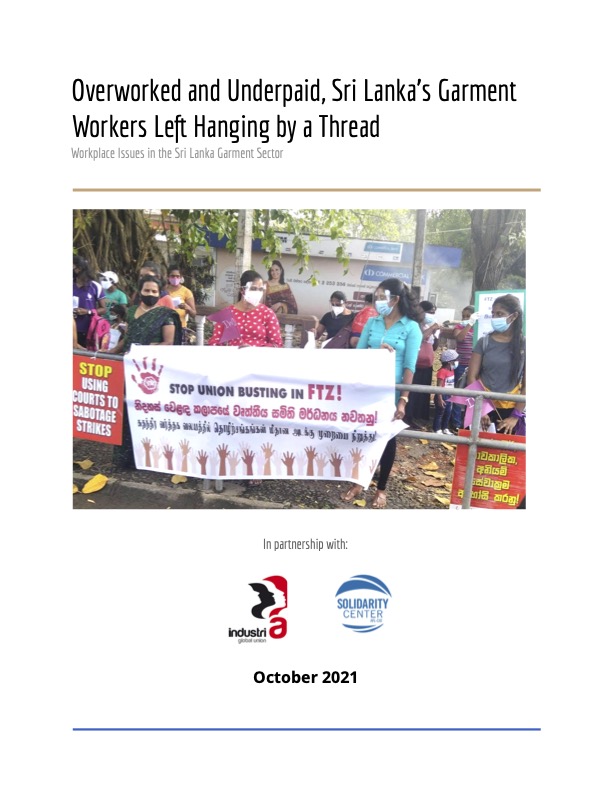
Overworked and Underpaid, Sri Lanka’s Garment Workers Left Hanging by a Thread
A survey of garment workers in Sri Lanka, conducted in partnership with Solidarity Center and IndustriALL, found employer opposition and harassment has limited their ability to form unions and address workplace rights violations such as increased workloads and work...
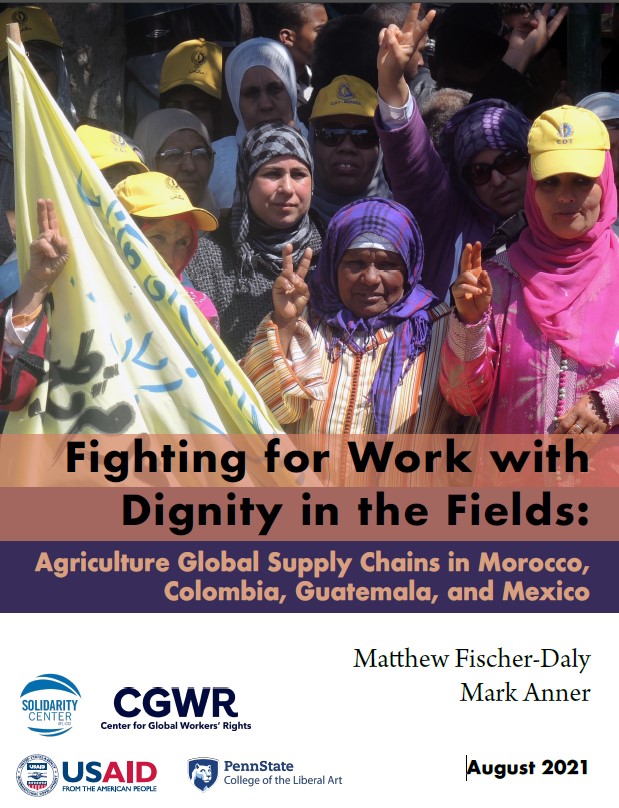
Fighting for Work with Dignity in the Fields: Agriculture Global Supply Chains in Morocco, Colombia, Guatemala and Mexico
Where unions establish collective bargaining, they initiate the strongest mechanism for protecting agricultural workers’ rights, health and dignity. Through analysis of five agribusiness sectors—including palm oil in Colombia, bananas in Guatemala, strawberries in...
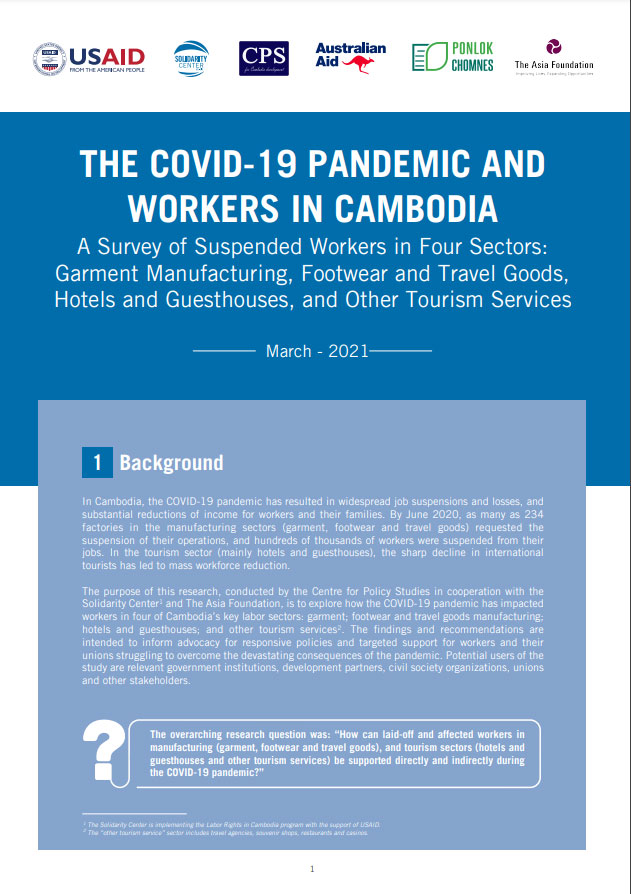
THE COVID-19 PANDEMIC AND WORKERS IN CAMBODIA
As a new wave of COVID-19 hits Cambodia, a new study recommends urgent action to ensure garment and tourism workers workers do not experience widespread loss of jobs and wages as they did in 2020. The Center for Policy Studies survey is supported by Solidarity Center...
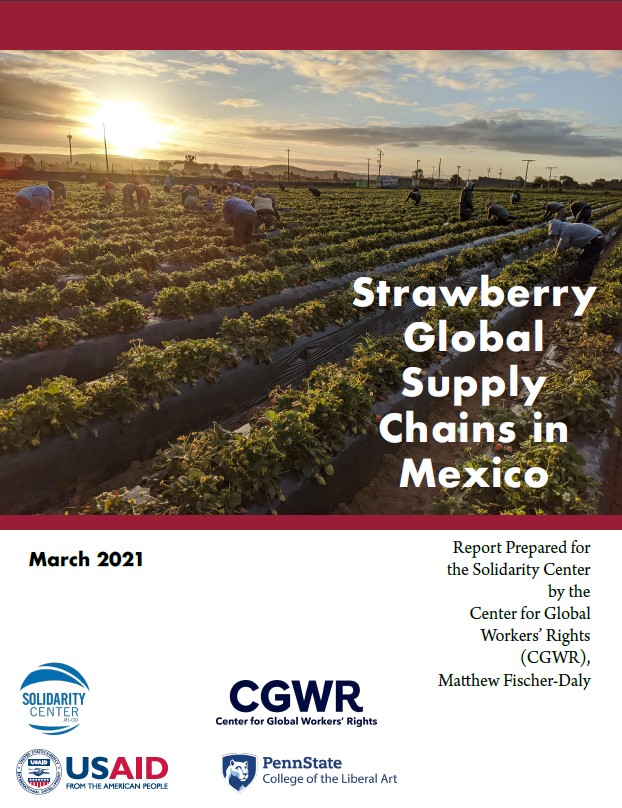
Strawberry Global Supply Chains in Mexico
The governments of Mexico and the United States have supported the growth of the Mexican berry sector by creating conditions for a cheap supply of labor and profit growth. Mexican field workers receive an estimated 12 cents per pound of strawberries sold in U.S....

